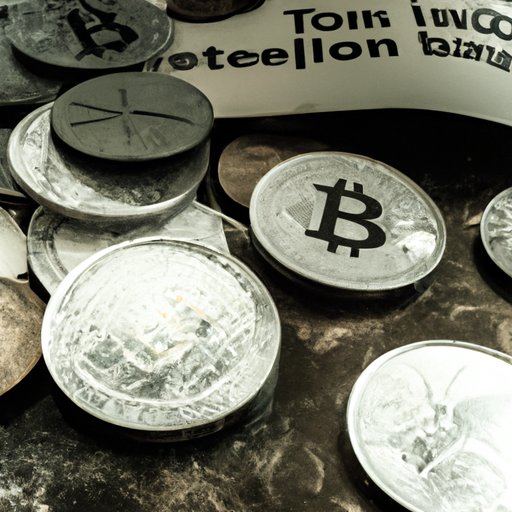
When Money Dies: Preparing for the Uncertain Financial Future
Money is the cornerstone of modern society. It is used to buy goods and services, pay debts, and invest in ventures. It is the one common thread that ties all of humanity together. But what happens when money dies?
In this article, we will explore the evolution of money and how it has changed over time. We will examine the different forms of currency and how they have impacted society. We will also discuss how individuals and families can prepare for an uncertain financial future and examine the history of money collapses in different countries. Finally, we will delve into the potential impact of cryptocurrencies on traditional currency and the effects of hyperinflation on the economy.

The Evolution of Money
Money has evolved from bartering systems to modern currency over time. In ancient times, people traded goods and services for other goods and services. As civilization progressed, currencies such as shells, cattle, and precious metals became more prevalent.
However, with the rise of modern society, paper money and coins became prominent. In recent years, the concept of digital currency has emerged, including cryptocurrencies like Bitcoin. As society and technology evolve, money will continue to change, potentially resulting in a cashless future.
The impact of such changes on society would be significant, as it would affect everything from how people make purchases to how they invest. It could also have an impact on inflation, interest rates, and other economic factors.
Preparing for an Uncertain Financial Future
While the likelihood of money collapsing entirely may be low, there are still ways that individuals and families can prepare for an uncertain financial future. In the case of a market crash or economic collapse, investors could potentially lose everything, including their retirement accounts.
Therefore, it is essential to have a backup plan in place, such as investing in precious metals that hold their value when currency crashes. It is also vital to have savings in an account with a reputable bank that is insured by the FDIC. Additionally, individuals should have a plan in place for how they would pay their bills, buy food, and cover other essential expenses in the event of a financial emergency.
The Historical Context of When Money Dies
Throughout history, several countries have experienced currency collapses that left their money worthless. In Germany after World War I, hyperinflation caused banknotes to lose their value entirely.
Other countries that have experienced currency collapses include Venezuela, Zimbabwe, and Argentina. In these countries, inflation rates soared, leaving the government unable to control the economy. Political instability, civil wars, and corruption have been common factors contributing to currency collapse.
After the currency collapses, countries have had to find ways to rebuild their economies and restore faith in their financial systems. In some cases, they have been successful, while in others, the impact has lasted generations.
Cryptocurrency: The Death of Traditional Money
Cryptocurrencies like Bitcoin are becoming increasingly popular as a form of digital currency. They are not backed by any government or financial institution, making them decentralized.
While cryptocurrencies offer many benefits, such as anonymity and security, they also pose challenges to traditional currency. The unregulated nature of cryptocurrencies can lead to fraud and money laundering. Additionally, the volatility of cryptocurrencies makes them risky investments.
Despite these concerns, cryptocurrencies have the potential to revolutionize how people make purchases and investments. As they become more mainstream, society will have to adapt to this new form of currency.
Impacts of Hyperinflation and the Inevitable Death of Money
Hyperinflation occurs when there is a rapid increase in the supply of money, leading to a decrease in the value of currency. This decrease in purchasing power can lead to businesses closing and individuals struggling to buy essential goods and services.
The implications of hyperinflation extend beyond individuals, affecting the economy as a whole. It can lead to a breakdown in the supply chain, a drop in the stock market, and a decrease in the value of real estate. Consumer decision-making is also impacted, as individuals may be less likely to make large purchases when their money is rapidly losing value.
One potential solution to mitigate the effects of hyperinflation is for governments to implement policies to control inflation and keep it at healthy levels. Another option is for individuals to diversify their investments and hold assets such as gold, which tend to hold their value better than cash during times of economic uncertainty.
Conclusion
Preparing for an uncertain financial future is essential, whether it is through diversifying investments or having a backup plan in place. Understanding the evolution of money and the historical context of when money dies can provide insight into how to navigate a potential crisis. The rise of cryptocurrencies and the potential for hyperinflation also requires individuals to be prepared for a changing financial landscape.
Further resources for individuals who wish to learn more about preparing for an uncertain financial future include financial advisors, investment professionals, and reputable financial news sources. Remember, being financially prepared is crucial for achieving long-term financial stability and success.





